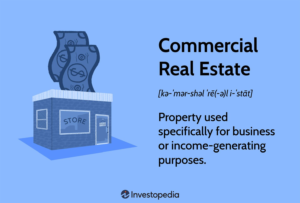Life Insurance Greenville provides a financial benefit that pays a beneficiary a sum of money upon the death of an insured person. It can be used for many things, including replacing lost income, paying off debt, and providing children with an inheritance.
To find the best life insurance, consider your needs and compare policy options from multiple companies. Also, pay attention to health, lifestyle and career factors that may impact the cost of a policy.

If you have a family, life insurance offers benefits that can help them cope with your death. These benefits can pay for expenses like housing, food, and utilities, outstanding loans, and child care costs. Moreover, they can help your family avoid bankruptcy and other financial problems after your death. In addition, you can use a portion of your death benefit to cover funeral costs.
Choosing the right type of policy is crucial. There are many different options available, and a financial professional can help you choose the right one for your unique needs. They can explain the differences between different types of policies, and assist you in calculating how much coverage you need.
The primary reason for getting life insurance is to provide a death benefit for your loved ones. This lump sum payout can cover your debts, mortgage, and other living expenses, as well as leave behind an inheritance for your family members. You can also purchase life insurance to pay estate taxes, which can be costly if you have significant assets.
You can choose from several types of life insurance, including term and whole life policies. Generally, whole life policies have level premiums that stay the same for the entire policy term and build up cash value. The amount of cash value you receive is based on the assumptions you make, such as mortality charges, expenses, and interest rates.
Some life insurance policies provide a cash value that you can borrow or withdraw as needed. However, if you withdraw money from the cash value, it will reduce the death benefit and any other accumulated value. In addition, some policies provide annual dividends that increase the value of the death benefit.
You can also use your life insurance to make a charitable contribution. You can designate a charity as the beneficiary of your life insurance and receive tax benefits for your donation. You can also choose to make the charity a beneficiary of your entire death benefit, which gives you greater flexibility in making your donation. Depending on your situation, you may want to consider the impact of federal and state death taxes before making this decision.
Premiums
In life insurance, premiums are the rate charged for coverage. This amount will vary depending on a number of factors, including your age and health. Other factors that can affect premiums include the type of policy and its coverage limits. Some policies are more expensive than others, so it is important to understand how your premiums are calculated before you decide on a policy.
Generally, the younger you are when you apply for life insurance, the lower your premium will be. This is because life insurance companies calculate rates largely based on your expected life expectancy. The older you are, the more likely it is that you will pass away, so your premium will be higher to compensate for this risk.
Another factor that can impact life insurance premiums is your health and lifestyle choices. If you engage in high-risk hobbies or work in a dangerous profession, your premiums will be higher than those of a healthy person of the same age. For this reason, it is best to buy life insurance as soon as you can afford it.
Life insurance can provide peace of mind to your loved ones in the event of your death. It can also help you pay off your debts and other expenses, such as funeral costs. However, the cost of life insurance can be prohibitive for many people. If you are looking for affordable life insurance, consider purchasing a term policy.
A term policy is a type of life insurance that lasts for a certain period of time, such as 10, 20 or 30 years. Unlike permanent policies, term policies typically do not require medical underwriting and are much cheaper than their permanent counterparts.
Alternatively, you can opt for a permanent life insurance policy that includes a cash value account. These policies are often more expensive than term policies, but they can provide a higher level of coverage for the same cost. In addition, they allow you to borrow against the cash value of your policy if necessary.
Regardless of the type of life insurance you choose, there are several ways to reduce your premiums. For example, you can pay your premium in lump sums rather than in installments. You can also increase your deductible or choose a higher coverage limit to reduce your premiums.
Taxes
Life insurance policies are generally not taxable in the US, provided they remain in the ownership of an individual. However, a number of exceptions do exist. For example, if a policy is sold for cash or other consideration, the proceeds are usually taxable. In addition, the death benefit is also taxable in some cases. If the proceeds of a life insurance policy are paid to the estate of a deceased person, they may be subject to federal taxation. However, the estate can exclude the death benefit from taxable income, if it is used to pay for funeral expenses or estate administration costs.
In addition, whole and universal life insurance policies earn interest, which is called “cash value”. This money is accumulated on the back end of the life insurance contract and is not included in the death benefit. This money is taxable when the owner withdraws it or takes out a loan. In most instances, this is a lump sum amount and is reported on the beneficiary’s tax return as income.
Whole and universal life insurance policies can be owned by a single person or multiple individuals. This money is then distributed among several people or entities, based on a percentage of the total policy value. The beneficiaries can be the holder’s spouse, children, or siblings. The holder can also choose to assign the benefits to a trust or charitable organization. The holder can also choose to change the beneficiaries at any time.
Unlike a business, a life insurance policy cannot be deducted as a business expense. This is because the premiums are paid with after-tax dollars. However, if the policy is a qualified dividend-accumulation policy, the accumulated interest can be deducted as a capital gain.
The tax consequences of a life insurance policy are complex and vary by state. To avoid confusion, it is best to consult a tax professional.
The amount of income tax you owe will depend on your life insurance’s cost basis, which is the initial investment in the policy. The initial purchase price is considered part of the cost basis, and any non-taxable withdrawals or loans reduce this figure. The remaining portion of the cost basis is then taxed on any income you receive from the policy, such as a partial surrender or a full surrender.
Cash value
The cash value component of life insurance is an important feature for some policyholders. This savings element accumulates over time and is based on the portion of premiums that are invested in the policy, as well as interest earnings and expenses. The amount of cash value accumulated varies between life insurance companies. It typically takes years for the account balance to reach a significant level. When a policyholder has accumulated sufficient funds, they can withdraw them or use them to pay the premiums. This can be a convenient and cost-effective alternative to taking out a loan or disrupting long-term financial plans.
However, the death benefit decreases by the amount of money withdrawn. In addition, the outstanding loan will accrue interest until it is repaid, and the life insurance company may charge fees for borrowing against the cash value of a policy.
In some cases, the money withdrawn from a policy’s cash value will be taxed. This can be a disadvantage for some policyholders, especially those who are looking to build wealth through their policy. For this reason, it is important to consider the benefits of a cash value policy before deciding whether it’s right for you.
Many permanent policies, such as whole life insurance and universal life insurance, provide a cash value component that grows over time. However, they also come with higher premiums than term life policies. A financial professional can help you decide if this type of policy is right for you.
A cash value policy can be a good choice for individuals who want a permanent life insurance solution and need a savings or reserve fund. However, it is important to understand that the cash value is not a substitute for saving or investing money. If you are planning to use the cash value of your policy as a retirement plan, it is a good idea to consult with an investment or tax advisor.
If you’re interested in a life insurance policy that provides a cash value, we recommend talking to an experienced agent. They will be able to recommend the best policy for your unique situation. They can also discuss the pros and cons of a cash value policy.
